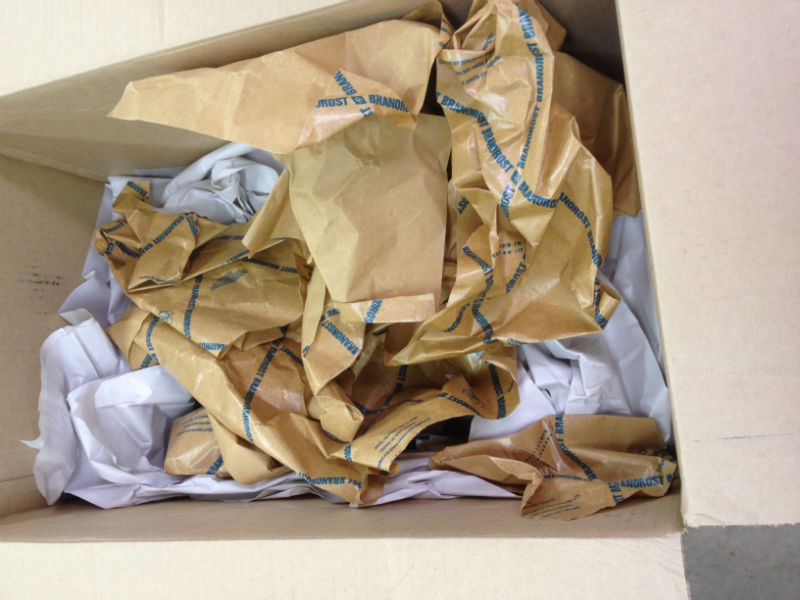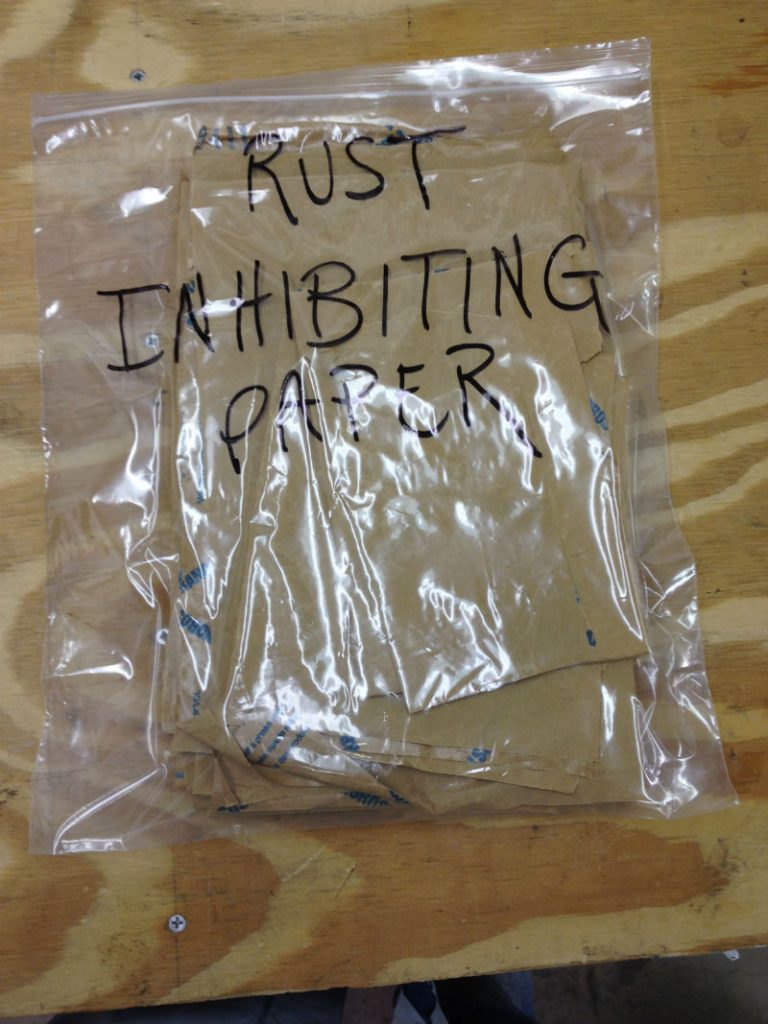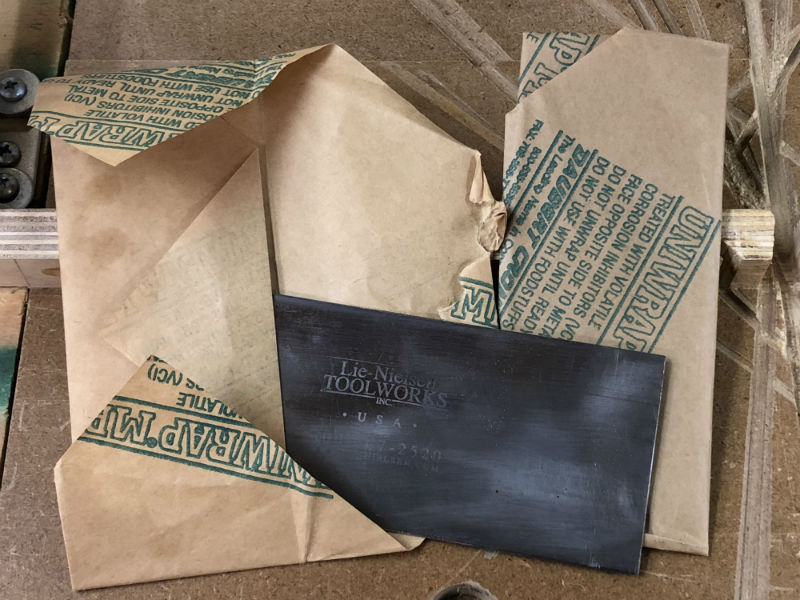No Southern-fried Southern boy wants to be called a Yankee, but we share the characteristics of shrewdness and thrift. Thus, each month we include a money-saving tip. It’s OK if you call me “cheap.”
You know me. I throw next to nothing away. If I have to get rid of something, I first ask, “Can this be recycled?”
Not only do I dislike discarding usable items, I’m not above picking up good materials from other people’s trash. More on
that next month.
Some see it as a contradiction to me to promote this column as “cheap” and “money-saving,” then recommend Festool, but, as many others can attest along with me, Festool purchases are an investment in value, not just an ordinary tool with an extraordinary price.
Some of my earliest Festools came protected in anti-corrosion paper. Any time I get some of this kind of paper, I hoard it. Think of it as adding to the value.

A box full of genuine Festool anti-corrosion paper collected after a tool shipment.
Step One is to seal it in one or more Ziploc bags to help retain the active ingredients.

A free zipper-locking bag provides long-lasting protection for one’s valuable protective paper.
The tools it originally protected may not need it after they leave the vicinity of the Atlantic Ocean, but both ferrous and iron-free tools around your shop can certainly benefit.
Have an old iron plane that mostly sits on a shelf? Wrap it up in corrosion-inhibiting paper.
These papers are technologically advanced. They start with kraft paper that scrapbookers would call “acid-free,” but, without getting bogged down in details, there is a lot more to it. Ingredients are added that vaporize over time, releasing the anti-corrosion effect as the calendar ticks by. Close the item and its protective paper in a zipper-locking bag, and the vapors are trapped and “recycled” (although not permanently).
Not surprisingly, makers of fine planes and other metal tools also use corrosion resistance to protect their products in transit. There is no need for that protection to end with the shipping process, however. The Lie-Nielsen Card Scrapers pictured below stay in their protective paper whenever not in use.

Lie-Nielsen tools use the finest of components, and come to the end user fully protected. There is no reason they can’t stay protected.
Jim Randolph is a veterinarian in Long Beach, Mississippi. His earlier careers as lawn mower, dairy farmer, automobile mechanic, microwave communications electronics instructor and journeyman carpenter all influence his approach to woodworking. His favorite projects are furniture built for his wife, Brenda, and for their children and grandchildren. His and Brenda’s home, nicknamed Sticks-In-The-Mud, is built on pilings (sticks) near the wetlands (mud) on a bayou off Jourdan River. His shop is in the lower level of their home.Questions and comments on woodworking may be written below in the comments section. Questions about pet care should be directed to his blog on pet care, www.MyPetsDoctor.com. We regret that, because of high volume, not all inquiries can be answered personally.

